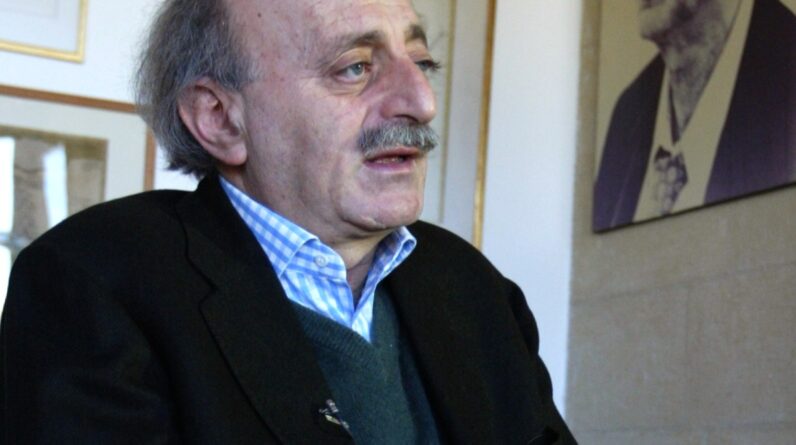
After resigning at the age of 73, Walid Jumblatt calls elections to choose the next leader of the Progressive Socialist Party.
Lebanese Druze leader Walid Jumblatt steps down as leader of the Progressive Socialist Party (PSP) after 46 years.
Jumblatt, 73, has called a party conference on June 25 to choose his successor, Lebanon’s state news agency NNA reported Thursday.
He took over as head of the left-wing PSP in 1977 after his father Kamal Jumblatt was assassinated two years into Lebanon’s 15-year civil war by suspected Syrian agents.
Historically, the PSP fought for a secular government and was one of the core groups supporting the Palestinian resistance along with the Lebanese Communist Party, the Syrian Nationalist Social Party and others on the left.
But the party’s secular foundation crumbled after Jumblatt took over and Druze civilians turned to him for weapons to defend themselves during the war. The Druze are a minority religious sect present in Lebanon, Syria, the Palestinian territories and Israel.
Jumblatt was one of the leaders of the 2005 Cedar Revolution, a movement sparked by the assassination of Rafiq al-Hariri, the former prime minister. For years, he led efforts to free Lebanon from Syrian influence and was a vocal critic of the Syrian government.
Like most Lebanese, the Druze are sharply divided by the war in neighboring Syria, with some supporting the government of President Bashar al-Assad and others aligned with the opposition.
In October 2019, when people took to the streets across Lebanon to demand an end to the entire political and economic power structure that has ruled the country since the end of the conflict in 1990, it helped mobilize civil efforts, but it was also widely criticized. to be merely performative.
The economic collapse that year saw the Lebanese pound lose more than 90 percent of its value, and the ruling class, which has been widely blamed for this, was unable to control the currency’s free fall . In March 2020, the crisis culminated in the country’s first sovereign default.
Lebanon has been without a president since October 2022, when Michel Aoun resigned, and has also been ruled by an interim cabinet since last year.
PSP supporters believe a young successor will present a new opportunity to defend the interests of the party, which has eight seats in the 128-member parliament. Jumblatt’s eldest son Taymour, 41, is expected to replace him.
[ad_2]
Source link





